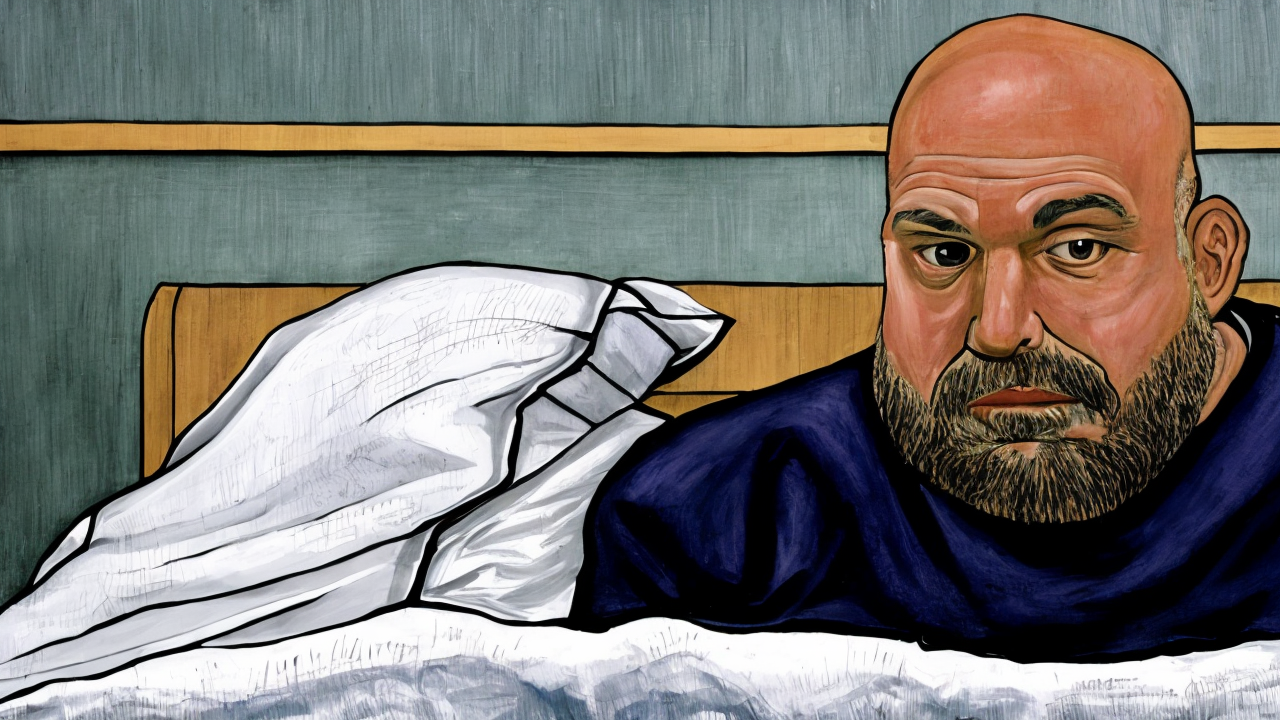Pennsylvania Senator John Fetterman Hospitalized After Fall

Senator John Fetterman’s recent hospitalization following a fall near his home in Braddock has drawn attention not only to his personal health but to broader concerns about the demands placed on those who serve in public office. The incident, which resulted in a brief medical emergency and minor injuries, underscores how fragile even the most visible figures can be under the strain of political life.
Fetterman, a U.S. Senate candidate from Pennsylvania, was treated at a Pittsburgh hospital and is now under observation for routine medical evaluation. His team confirmed that he is stable and recovering, expressing gratitude for the care provided by emergency responders and medical staff. Though he has faced significant health challenges in the past—including a stroke in 2022 and ongoing struggles with depression—his current condition remains manageable. Still, his experience invites reflection on the kind of strength required to lead in today’s climate.
Leadership, especially in government, is not merely about policy or ideology. It requires physical endurance, mental clarity, and emotional stability. When public figures are under constant scrutiny, responding to crises, managing campaigns, and facing relentless media attention, their well-being becomes a matter of national consequence. The fact that Fetterman has spoken openly about his mental health journey is commendable in its honesty. Vulnerability, when genuine, can foster connection and empathy. But it also raises the question: how much should personal struggle be part of the public narrative?
There is a growing tendency to equate openness with authenticity, and while transparency has its place, it should not be mistaken for a substitute for preparedness. A leader who is constantly managing personal health crises may struggle to maintain the steady hand required in times of national need. When decisions are made under pressure, fatigue, or emotional distress, the consequences ripple outward—shaping policy, influencing public trust, and affecting the stability of institutions.
This is not a call to dismiss those facing hardship, nor is it a rejection of compassion. On the contrary, it is a reminder that service to the public demands more than good intentions. It demands resilience—the kind of inner strength that comes not from avoiding difficulty, but from enduring it with integrity.
In a time when political discourse often feels fractured and divisive, the need for capable, grounded leadership has never been greater. We must not confuse visibility with strength, nor equate emotional disclosure with readiness. True leadership is not measured by how much one shares, but by how well one can carry the weight when it matters most.
Fetterman’s recovery is a positive sign. His return to duty, when the time comes, will be watched closely. But his experience should prompt a deeper conversation about the kind of individuals we choose to lead us. Do we value those who are merely present, or those who are truly prepared? Are we building a system that rewards endurance, discipline, and sound judgment—or one that celebrates vulnerability as a virtue in itself?
The future of our nation depends on leaders who are not only committed to their principles but also capable of upholding them through trials. A people cannot thrive under the weight of leaders who are barely holding on. We must look beyond the headlines, beyond the emotional appeals, and ask what kind of strength we truly want in our representatives.
In the end, leadership is not about perfection. It is about perseverance. It is about showing up, day after day, with clarity, courage, and care. As we reflect on Fetterman’s experience, let us not only pray for his recovery—but also consider what kind of leaders we are willing to entrust with the future.
Published: 11/13/2025








